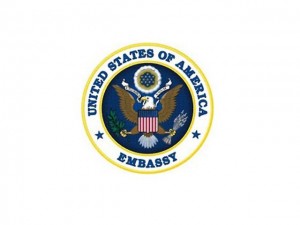US helps Afghan refugee women learn professional trades
Friday, July 26th, 2013 10:13:45 by Tahir Khan
Richard Albright, Coordinator for Economic and Development Assistance at the U.S. Embassy Islamabad, inaugurated “Shop for Cause” at Malikabad Plaza, Rawalpindi.
This exclusive outlet for the hand-embroidered fashions and handicrafts of Afghan women refugees is a direct result of collaboration between the U.S. government and the Hashoo Foundation.
The artisans studied tailoring and marketing with Hashoo, and the practical skills they gained will allow them to earn extra income for themselves and their families while in Pakistan and when they return to Afghanistan.
The project is an example of a successful public-private partnership, bringing together U.S. development funds with the expertise of the Hashoo Foundation. The U.S. government also works with the Hashoo Foundation on other livelihood programs. For example, under a $2 million grant from USAID, Hashoo is raising the incomes of 8,000 women and men in Bahawalpur through training in livestock management and milk production.
Since 1979, Pakistan has generously hosted a shifting population of Afghan refugees. While millions have voluntarily returned home, some 1.64 million registered Afghan refugees remain in Pakistan, continuing one of the largest and most protracted refugee situations in the world.
About 50% of this Afghan refugee population lives in villages across Khyber Pakhtunkhwa (KP) and Balochistan; the remaining refugees live in urban areas of Peshawar, Quetta, Karachi, Islamabad, Rawalpindi, and Lahore.
The State Department’s Bureau of Population, Refugees, and Migration (PRM) has worked closely with the Governments of Pakistan (GOP) and Afghanistan to design and secure durable solutions for the Afghan refugee population.
One example is the PRM-funded project, “Skills Training and Income Generation for Urban Afghan Refugees residing in Rawalpindi/Islamabad and Peshawar.”
This program, now in its third year, benefits both men and women by training them in auto mechanics, plumbing, tailoring, beautician skills, mobile phone repair, and other in-demand technical trades. In the Rawalpindi area alone, this training has had an enormous impact on the income and livelihood of over 1,800 Afghan refugee graduates, who represent as many families.
Tags: Afghan refugees, Khyber-Pakhtunkhwa, Richard Albright, US aid, US embassy IslamabadShort URL: https://www.newspakistan.pk/?p=41028

















